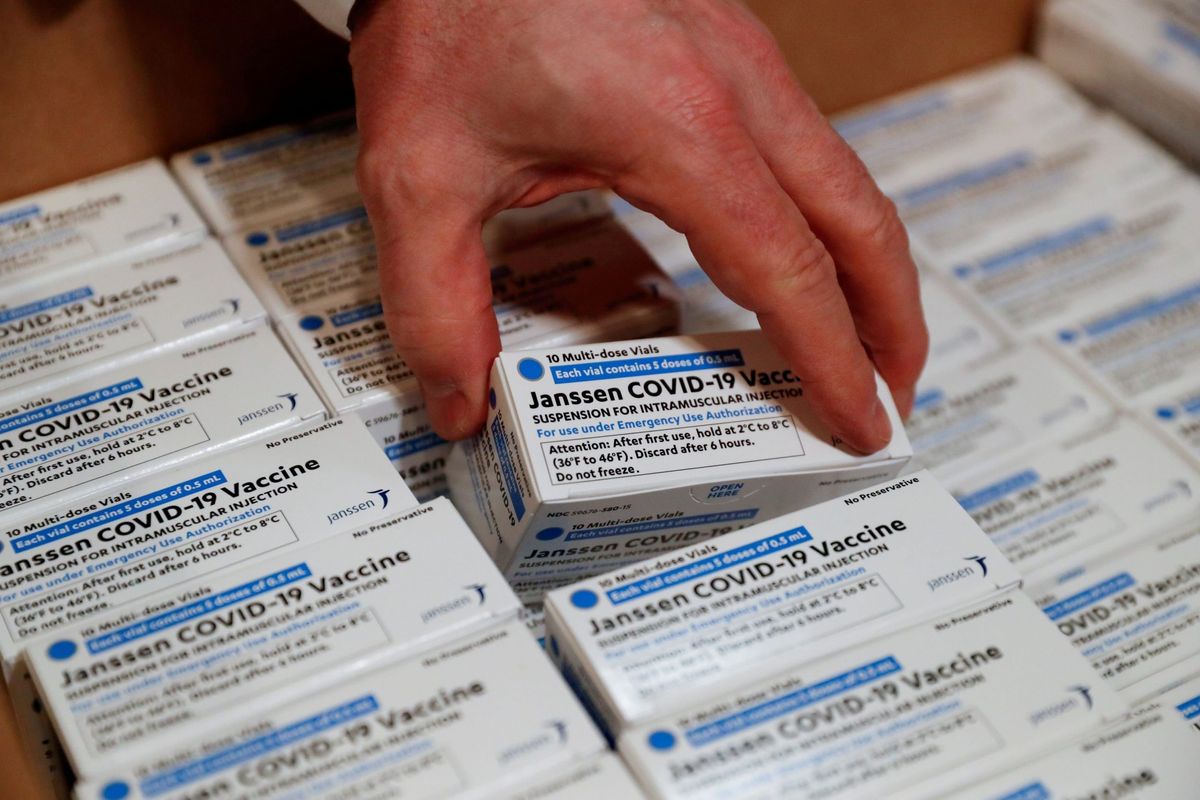Experts are worried the US won’t achieve herd immunity from COVID-19

A few minutes every morning is all you need.
Stay up to date on the world's Headlines and Human Stories. It's fun, it's factual, it's fluff-free.
The safest way to achieve herd immunity is by having everyone get vaccinated.
- Having lived through a pandemic for more than a year, we all are understandably eager to get back to normal life.
- The exact severity and scope of the COVID-19 pandemic has been changing ever since the virus first appeared and estimates of infections and deaths have fluctuated dramatically.
- The entire time, medical experts have cautioned that things wouldn’t begin returning to normal until countries reached something called herd immunity.
Is herd immunity achievable?
- The safest way to achieve herd immunity is by having everyone get vaccinated.
- Vaccines kick-start a person’s immune system so that it recognizes a virus – for instance, COVID-19 – and can fight that virus when you encounter it.
- With millions of people being vaccinated in the United States (and around the globe), for a while it was looking like the US was going to achieve herd immunity.
- But herd immunity for COVID-19 will require something like 70-90% of the population to be immune to the virus.
- That’s where the problem lies.
Not enough people are getting vaccinated
- There are multiple reasons herd immunity may be unrealistic, according to some health experts.
- But the main reason is that millions of Americans refuse to get vaccinated.
- And yes, while most of the country has now received either one or both shots, or are simply waiting their turn, there are a whole lot of Americans who have no intention of getting vaccinated at all.
- The Biden administration is hopeful that 70% of the adult population will have had at least one shot by the summer.
- But that likely won’t be enough.
- Recent polls have found that around 30% of adults are hesitant or just flat out against the idea of getting the vaccine.
- The reasons for this range from health concerns about the safety of a new vaccine to more conspiratorial fears, like the discredited theory that Bill Gates has loaded vaccines with microchips … or something.
- Whatever their reason, if only 70% of the population is vaccinated, that is almost definitely not going to be enough for the US to reach herd immunity.
The COVID variants are also a problem
- Even in the best-case scenario where at least 70% of the total population – adults and children – were vaccinated, herd immunity still might not happen.
- That’s because COVID-19 is evolving.
- Viruses evolve and mutate all the time – it’s just a normal part of their life cycle.
- Think of the flu and how new variants pop up all the time. It’s the reason we regularly see headlines like, “This year’s flu season may be a bad one.”
- It’s also why scientists are constantly developing new flu vaccines, to combat new variants.
- That same phenomenon is happening with COVID-19, but at an even faster rate because the virus is so widespread.
- With countries like India experiencing a surge of infections, new variants are basically inevitable. Every newly infected person has the potential to be a breeding ground for a new variant.
- So far, the vaccines have proved to be effective against almost all variants we have seen.
- But, so long as the virus is still spreading in a large population, there is always the chance a new variant could prove resistant to the vaccine.
Are we stuck with COVID-19 forever?
- Like the flu, COVID-19 will likely continue to spread through the population indefinitely.
- The good news is herd immunity may no longer be the only way to achieve normalcy.
- Instead of eradicating the virus, the US just needs to get enough people vaccinated so they’ll be immune to it so that hospitals and medical workers aren’t overwhelmed.
- As long as the most vulnerable populations are vaccinated and anyone who wants a vaccine can get one, normal life will return sooner or later.·
- Who knows? Future generations may talk about the COVID pandemic the same way we discuss the 1918 influenza pandemic.
Have a tip or story? Get in touch with our reporters at tips@themilsource.com




Comments ()